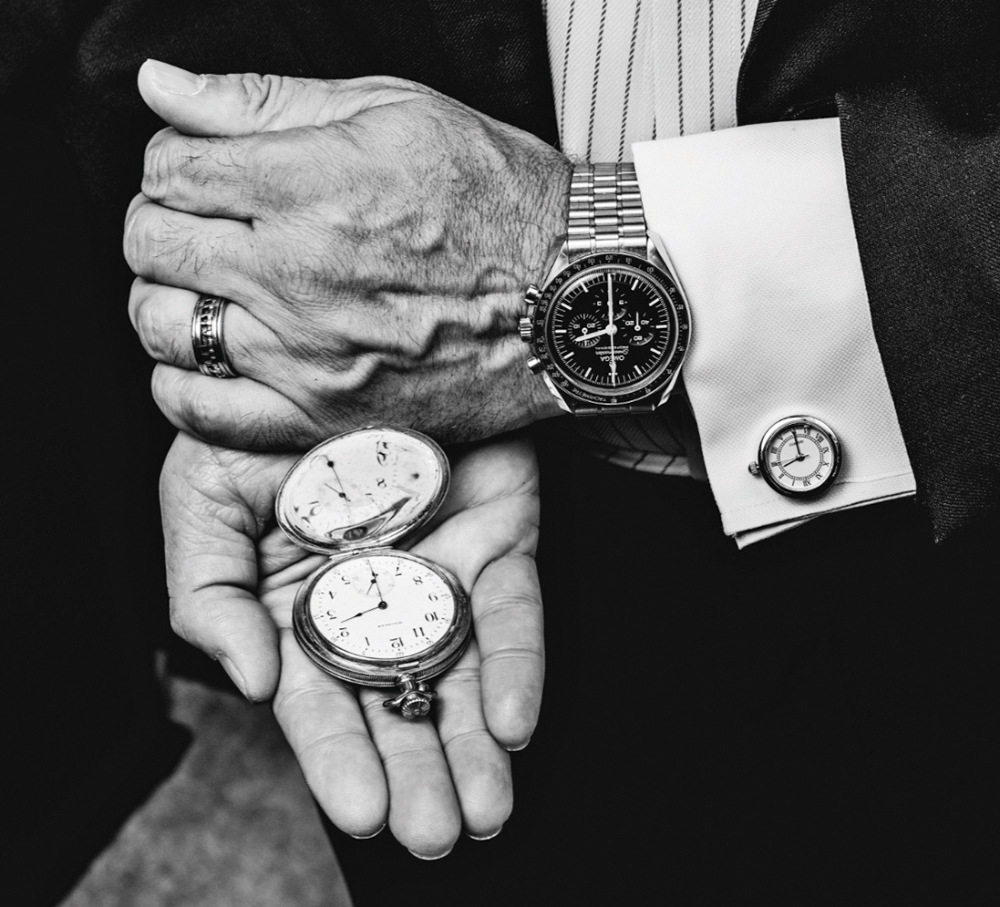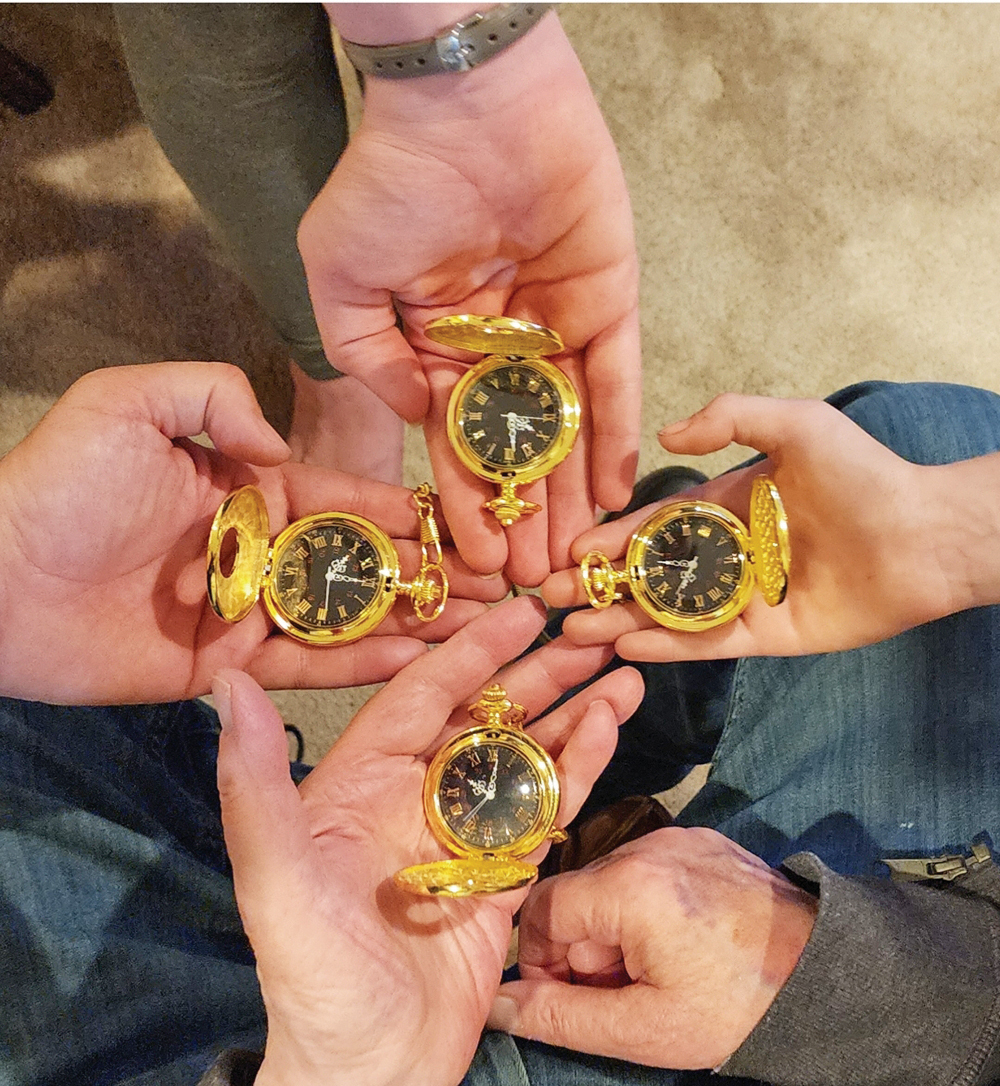
It’s about time.
This conversation started with my great grandfather’s pocket watch, and it ends with my children’s pocket watches.
Timekeeping is as old as time itself.
(That does not make sense.)
Timekeeping began as soon as man realized he needed to keep track of the days. Most record keeping goes back to the ancient Sumerians. It is believed that the first writing was created to keep track of who paid their taxes to the Scorpion King in Samaria.
(You mean the guy from the movie, “The Mummy”?)
I doubt that he looked like Dwayne “The Rock” Johnson … but, yes.
With the beginning of Semitic civilizations, time was measured by the sun, the moon and the stars.
(Semitic?)
Every ninth grader knows that four river valleys developed civilization at approximately the same time.

Sumer, Egypt, Indus and China. Much of how we measure time comes from three of these areas.
China was isolated for centuries by mountains, so they didn’t experience cultural diffusion.
(Cultural what?)
The exchange of ideas when two cultures meet. Timekeeping was mostly sun and moon dependent until the sundial was developed in Egypt approximately 1,500 BCE, which is around when the Hebrews were exodused from Egypt.
(Is “exodused” even a word?)
It’s 2023, it can be. Where is my “Funk and Wagnails”?
(Your Funk and what?)
Pre-20th century dictionary and encyclopedias. You know, Google … in book form.
(So, what changed and how do we get back to the pocket watches you started with?)
Ctesibius created the first clock. He lived in Alexandria Egypt around 250 BCE and devised a machine that used the flow of water to measure time. Then Hillel the Nasi set the model Jewish calendar between 330 and 365 CE, so the Jewish people would not be dependent on the Sanhedrin to declare the new moon. The first mechanical clock was built in 996 in the German town of Magdeburg but wind-up gearing isn’t the most prescient way to measure time. Using Galileo’s pendulum, Christiaan Huygens invented the first pendulum clock in 1656. Without delving into a physics lesson on harmonic oscillators, as long as the clock’s spring was wound, the pendulum would swing at a constant pace, which provided precise timekeeping.

(Credit: Moshe Gershbaum)
(F=-kx?)
Yes, but I was trying not to delve into physics.
(You could have just referenced Newton’s Second Law…)
In 1675, Huygens invented a timepiece for Louis XIV that changed the world. A chronometer that used a spiral spring and a balance wheel instead of a pendulum for regulation. This was the 17th-century version of replacing flip phones with smartphones.
This is how we were able to “strap” time to our wrists. This is how we got to the moon in 1969.
We moved to quartz in 1927. When you zap electricity into a quartz crystal, you get a very precise frequency. Now people were setting spring wind wrist watches by the quartz clocks that were plugged into the wall. We no longer keep time on our wrists; we keep it in our hands, on our phones, but we once kept it in our pockets. The first portable timepieces were pocket watches. The first pocket watch dates back to the time of Columbus and funnily enough … is mentioned in a letter between an Italian clock maker and an Italian duke. By the time Pizzaro had conquered the Inca in 1523, pocket watches were common in many European countries. It wasn’t until World War I that wristwatches became the fashion for men.
The back of my great-grandfather’s watch is stamped 1902. Recently one of my children asked me who would get my great-grandfather’s pocket watch after I passed on.
I chuckled, “My son, I’m not going anywhere for a long time. I will be here as long as you need me to be.”
(But that didn’t answer his question.)
So instead of splitting the baby like King Solomon, I bought each son his own watch as well as one for me and one for my dad. You see, my dad never had a pocket watch either. He inherited a broken timepiece from his father. When my grandfather died in 1995, I had the watch repaired. By buying my dad the fourth watch I gifted him time … because it was about time.
David Roher is a USAT certified triathlon and marathon coach. He is a multi-Ironman finisher and veteran special education teacher. He is on Instagram @David Roher140.6.
He can be reached at [email protected].










